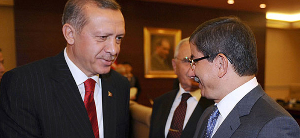The Return of the Generals
By Halil Karaveli (vol. 7, no. 21 of the Turkey Analyst)
The Turkish generals are no longer afraid to speak out and they exert influence over government policies. Erdoğan invited the military back into the power equation when, faced with the Gülenist challenge to his power, and in need of a new ally, he gave the signal to open the prison doors for the convicted officers. But more than anything else, it is the persistence of an authoritarian mindset that sets the stage for the recurrent assertion of the power of the military in Turkey.
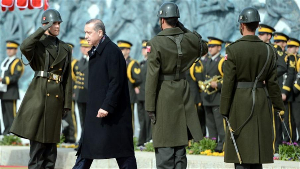
Planes, Palaces and Paranoia: Erdogan's New Turkey
By Gareth Jenkins (vol. 7, no. 20 of the Turkey Analyst)
On November 4, 2014, Turkish Finance Minister Mehmet Şimşek revealed that a total of $800 million would be spent on a new palace and plane for President Recep Tayyip Erdoğan. The announcement has reinforced concerns about not only about Erdoğan’s increasing authoritarianism but also about his growing absorption into his self-image at the cost of the realities of the world around him.
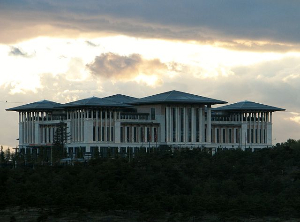
Turkey Sees Itself as the Target of American "Imperial Designs"
By Halil Karaveli (vol. 7, no. 20 of the Turkey Analyst)
The neo-Ottomans are reverting to Kemalism. From having aspired to be the rule-setter of the Middle East, President Recep Tayyip Erdoğan is now exhibiting neo-Kemalist traits, accusing the Western powers of harboring imperial designs against Turkey. For Turks of all stripes assuming the worst about Western “imperialists” is natural. But that also means that the fears that their prejudices entertain risk becoming self-fulfilling prophecies.
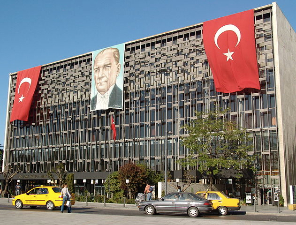
Yesterday's Wars: The Cause and Consequences of Turkish Inaction Against the Islamic State
By Gareth Jenkins (vol. 7, no. 18 of the Turkey Analyst)
On October 7, 2014, Turkey was swept by some of the most violent civil unrest in a generation. At least 23 people were killed and hundreds injured in an eruption of Kurdish nationalist anger at Ankara’s perceived indifference to the apparently imminent capture by the Islamic State of the predominantly Kurdish Syrian border town of Kobane.
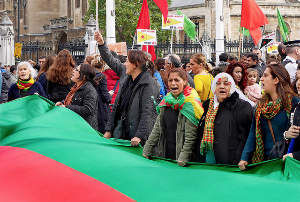
Without Constitutional Amendment, Erdoğan is Unlikely to Remain an All-Powerful President
By Kemal Kaya (vol. 7 no. 18 of the Turkey Analyst)
The Turkish political system is parliamentarian. President Recep Tayyip Erdoğan may have succeeded in neutering of the role of the constitutionally designated executive, the government, but that is only temporary. Sooner or later, the dynamics of the political system are going to assert themselves. The prime minister, even Ahmet Davutoğlu, if he retains the post after the 2015 general election, is set to eventually reclaim power from the president.
